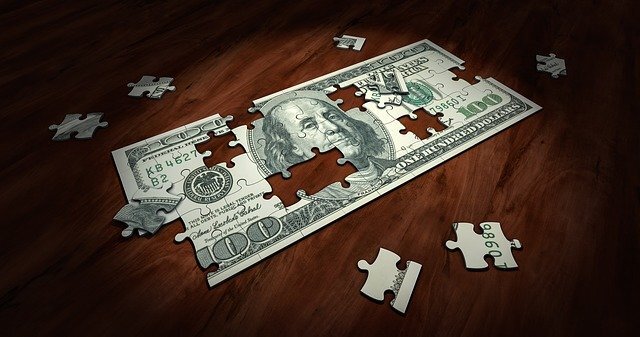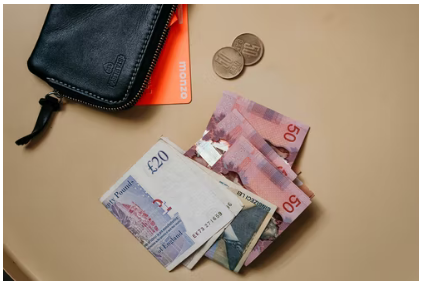
If you've ever been concerned about how to seek help with bills or other unexpected obligations, you're not alone. According to recent findings, financial anxiety causes close to 65 percent of Americans to lose sleep.
However, many hospitals and managed care organizations provide people with financial assistance programs with the aim of reducing financial burdens and increasing healthcare access for low-income patients.
It is a widely held fact that it can be difficult to obtain financial assistance, but we also know that there is hope. If you need emergency financial aid and aren't sure how to get out of debt, solutions are not exactly out of reach. In this guide, you will learn how you can regain financial security through government help, nonprofit initiatives, and online fundraising. But first, here are some indications to know if you belong to this category. Read on.
Five Indications That You May Require Financial Assistance
It's easy to feel financially comfortable on a daily basis, but a single incident can signal that a personal financial catastrophe is on the way. It is time to rethink your financial situation if you commonly experience any of the five warning flags highlighted below:
1. It is difficult to glance at your bills and expenditure records
It's disheartening to realize you've gotten even further into debt, but it's even worse when you disregard the situation. When you notice that the debt balance on your financial statement is increasing rather than decreasing, it's time to act and make an appointment with your bank.
2. You lack any form of savings or an emergency fund.
In a utopia, every single person would have at least six months' worth of living expenses in an emergency fund. According to Forbes, 40 percent of Americans do not have enough funds to cover a $500 emergency.
Building a solid emergency fund with at least six months of savings is the primary way people avoid taking on additional debts or loans. You could be facing a fiscal disaster if you don't have some spare change in the bank.

3. You try not to think about the future.
If you find yourself unwilling to think about or focus on your financial future, it is safe to say your financial position may have gotten the best of you. If this is what your situation looks like, it's time to take a step back and imagine what your financial future will look like in 11, 14, or even 20 years.
4. You rely on credit cards to make ends meet.
Using credit cards arbitrarily or to pay for necessities such as shelter, food, and transportation is a red flag that you may need to review your financial status. If you don't hesitate to take on more debt, it's probably time to cut off your credit cards.
5. You regularly use your savings.
If you find yourself unable to expand your savings or dipping into your savings regularly to make ends meet, it's time to rethink your spending habits and budget.
What To Do When In A Financial Crisis
Amid a financial crisis, attempting to pick up the pieces might lead to bad decision-making. When a financial crisis hits, there are three things you should do right away. Follow these steps to avoid the traps of credit card billing, predatory lenders, and other hazardous debt reduction solutions:
• Seek assistance
Seek counsel from someone you trust who has previously dealt with a financial emergency. They might be able to impart some insight.
• Establish your priorities
Reevaluate your budget and prioritize your expenditures. Look for ways to reduce non-essential spending to a bare minimum.
• Avoid drastic measures
To combat feelings of panic and helplessness, establish a list of legitimate alternatives to obtain immediate cash aid. Do not go on a borrowing spree.
Programs That Provide Financial Aid in an Emergency
Even with a redesigned budget and a renewed focus, a financial crisis can make it extremely difficult to pay monthly expenses and remain debt-free. If you're still trying to pay for costly medical treatments, deal with unpaid maternity leave, or deal with other unforeseen bills, there are public and private programs that can help you get back on your feet. You can keep reading below:
Government Support Programs
These programs provide government subsidies, grants, and training to individuals and families in need of emergency financial support. These financial hardship aid programs may be able to assist you if you need to or obtain emergency rental assistance or pay medical expenses right away.
Government Food Assistance Programs
Temporary Assistance for Needy Families (TANF) is a federal program that offers federal grants to each state in the United States to operate the TANF program. The eligibility requirements and programs vary by state, but they generally assist with basic needs such as food, housing, and other necessities.
Government Utility Programs
LIHEAP (an acronym for The Low Income Home Energy Assistance Program) is a federal program that assists low-income people in controlling the temperature in their homes during the summer and winter. LIHEAP can also assist with cooling system repairs and low-cost heating.
Government Housing Cost Programs
• A popular and well-run housing program, The U.S. Department of Housing and Urban Development (HUD) provides housing funds and other forms of subsidized housing.
• The Housing Choice Voucher Program is a program that aims to provide low-income families and individuals with affordable housing. Those who meet the eligibility criteria work with public housing agencies (PHAs) to find accommodation and pay a portion of the cost.
Government Medical Programs
The Medicare Savings Program provides low-income families and individuals with four options for paying copayments, premiums, deductibles, patient care, coinsurance, and other medical expenses.
Nonprofit Financial Help Resources
Aside from government programs, various charitable programs and grants are available to aid people with anything from food and shelter to out-of-pocket medical bills and child care assistance. You could also try contacting a nearby religious organization, as many churches assist needy families.
Nonprofit Food Assistance Programs
Feeding America is an organization that provides food in times of emergency across the country through a network of about 40,000 food pantries, meal programs, and 180 food banks. In addition, the charity assists persons in need in locating long-term aid through government programs, even assisting with the application process.
Nonprofit Utility Assistance Programs
• Modest Needs is a nonprofit that provides financial assistance for a wide range of needs, with a distinct emphasis on temporary needs such as housing costs aid and energy bills aid. The organization makes available an option called "self-sufficiency grants" to those struggling to get back on their feet.
• 2-1-1 is a program that assists persons in need with various services, including utility assistance. When you dial 2-1-1, proficient specialists are there to assist you 24 hours a day, seven days a week.
Nonprofit Housing Programs for Rent Costs and Mortgages
• Every year, the Community Action Partnership assists over 136,000 families in obtaining safe and affordable housing. It also offers training and referrals to other government resources to help impoverished communities get financial assistance.
• Volunteers of America, another nonprofit organization, believes that a home is more than just a place to sleep; it is essential for stability and security. This organization houses around 22,000 veterans, families, seniors, and others in need each year in different places across the United States.
Nonprofit Medical Expenses Programs
• According to the National Association of & Charitable Clinics (NAFC), everyone has the right to affordable health care. The NAFC has about 1,150 clinics across the United States where low-income individuals and families can seek medical care, either by providing financial assistance to pregnant women or assisting with surgery costs.
• The HealthWell Foundation (nonprofit) assists the underinsured pay out-of-pocket hospital bills and premiums and finds alternatives to merely coping with medical debt. Health insurance coverage status, income level, and medical condition are all eligibility criteria.
Crowdfunding
It is possible that you might not be eligible for government assistance. Even if you are, long queues and lengthy application processes can be discouraging and frustrating when you are applying for government benefits. Not to worry — there are other options for immediate financial relief. Crowdfunding can play an important role in your financial recovery.

How Crowdfunding Can Help
Countless others in your situation have used online fundraising to get immediate financial assistance, whether for a natural disaster or an unforeseen illness like the coronavirus. With GoFundMe, you can easily raise emergency funds for housing costs, utilities, medical bills, and everything in between. GoFundMe provides a straightforward set-up process, a blog full of fundraising ideas and suggestions, and 24-hour customer assistance.
Conclusion
When you are confused about deciding to apply for financial assistance, or you feel like you've hit a stumbling block, please note that it's natural to feel guilty or ashamed when you're on the verge of a financial catastrophe. It would be best to remember that your relatives and friends want you to succeed. Finding help from people you know and trust might be crucial in overcoming this adversity.
.png)
